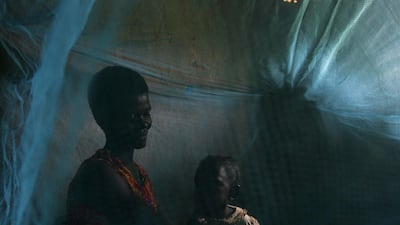Forty years ago today, in an unprecedented feat of global public health collaboration, the world eradicated a virus that had plagued humankind for three millennia.
In the eight decades leading up to that point, it killed around 4 million people a year.
But on May 8, 1980, the World Health Organisation officially declared that the world was finally free of smallpox.
Today, the virus exists only in a limited number high-security laboratories.
Our victory over smallpox marked the first and only time that humanity has ever successfully eradicated a disease through coordinated efforts.
Today, in the era of Covid-19, it is a precious reminder that such feats are possible.
Viral pandemics, of course, are only one among a myriad of threats to public health that emerge from nature.
Another, which has devastated tropical regions of our planet for much of human history, is the malaria parasite, spread primarily through infected mosquitoes.
Malaria claims over 400,000 lives a year, most of which belong to children and infants.
The annual economic costs of the disease to Africa alone amount to $12 billion. The UAE has been malaria-free since 2007.
In the last decade, it has punched far above its weight in helping to combat the disease worldwide.

In addition to supporting the Roll Back Malaria Partnership and donating malaria nets and other supplies to Yemen and various African nations, the UAE has also been a major supporter of Gavi, the global vaccine alliance, which has launched its own malaria vaccine pilots.
Through its leadership in the Reach the Last Mile initiative, a global public-private coalition is working to combat malaria, polio, river blindness and other diseases. Abu Dhabi's biannual RLM Forum has become the meeting point for public health leaders committed to eliminating disease.
Significant progress has been made. The current death toll from malaria is less than half of what it was a decade ago.
But without a vaccine, the fight had begun to stall – until now.
This week, the scientific community announced a significant breakthrough on the road to eradicating malaria.
A multinational team of researchers in Kenya have discovered that Microsporidia MB, a fungus-like microbe that also parasitises mosquitoes, protects its insect hosts from malaria infection, in turn preventing them from transmitting it to humans.
The researchers found that not a single mosquito carrying Microsporidia MB (5 per cent of the mosquitoes surveyed) also hosted the malaria parasite.
There is still some ways to go before the benefits of Microsporidia MB can be fully realised. But a major benefit is that it is already a natural part of the ecosystem and does no apparent damage to mosquitoes or the wider biosphere.
To effectively halt malaria in its tracks, it needs to infect 40 per cent of a region’s mosquitoes, and more studies must be done on how to spread it effectively.
If further work on a solution to malaria involving Microsporidia MB proves successful, we will show – perhaps for the second time in the last half-century – that we are not a species so easily defeated by disease outbreaks.
With co-operation, ingenuity and hard work, we can always make the world of tomorrow a safer and healthier place.








